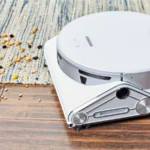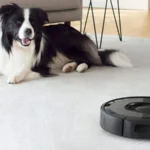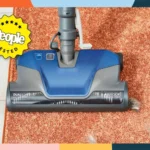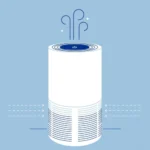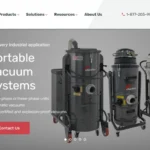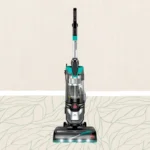The air we breathe has a profound impact on our health, and yet many of us are oblivious to the quality of the air circulating in our homes. Indoor air pollution is a growing concern, with studies suggesting that the air inside our homes may be more toxic than the air outside. HEPA (High Efficiency Particulate Air) filters have become increasingly popular as a solution to reducing indoor air pollution. But what exactly is indoor air pollution? And how do HEPA filters work to combat this issue? Let’s dive in and explore the role of HEPA filtration in improving the air we breathe.
What is indoor air pollution?
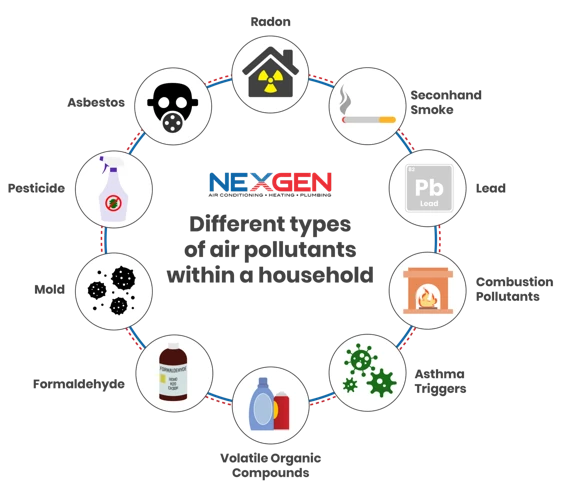
Indoor air pollution is a major concern that affects many households worldwide. Poor air quality in your home can have a significant impact on the health and well-being of you and your family. While many people may think their homes are safe from pollution, the truth is that pollutants can come from many sources, such as dust, pet dander, chemicals, and smoke. These contaminants can accumulate in the air, causing respiratory problems and other illnesses. The good news is that using a HEPA filter can help reduce indoor air pollution and improve air quality. In the following sections, we’ll explore the causes and effects of indoor air pollution and how using a HEPA filter can help. We’ll also look at the advantages of using a HEPA filter, factors to consider when choosing one, and limitations you should be aware of. Finally, we’ll discuss how you can use a HEPA filter with a smart vacuum cleaner, which can provide even more benefits for those with allergies and asthma.
Causes of indoor air pollution
Indoor air pollution is caused by a variety of factors that affect the air quality inside our homes and workplaces. Some of the most common causes of indoor air pollution that can be reduced with the use of HEPA filters include:
- Dust and dust mites: These can affect the air quality and cause allergies in many people. Dust mites flourish in areas where there is a lot of dust and can trigger asthma.
- Pet hair and dander: Pets can leave hair and dander on carpets, furniture, and bedding. This can cause allergies and asthma, particularly in people who are sensitive to pet dander or have existing respiratory conditions.
- Pollen: Pollen can enter our homes through open windows and doors or by attaching itself to our clothes and shoes. It can cause allergies and trigger asthma symptoms.
- Mold and mildew: These can grow in damp or humid areas of our homes, such as bathrooms and basements. Mold and mildew can cause respiratory problems and trigger allergies in sensitive individuals.
- Cigarette smoke: Smoking indoors can release harmful chemicals into the air, which can cause lung cancer and other respiratory problems. Secondhand smoke is also a problem, particularly for children and non-smokers.
- Cleaning products: Some cleaning products can release harmful chemicals into the air, which can cause respiratory problems and trigger allergies in sensitive people. Using a smart vacuum cleaner with HEPA filtration can help reduce the number of chemicals in your home.
These are just some of the common causes of indoor air pollution. By using a HEPA filter, you can help reduce the amount of pollutants in your indoor air and improve your overall air quality.
Effects of indoor air pollution
Indoor air pollution is a serious concern as it can have numerous negative effects on human health, both in the short and long term. The effects of indoor air pollution can vary depending on the individual’s age, health status, and exposure level.
Here are some of the most common effects of indoor air pollution:
| Effect | Description |
|---|---|
| Respiratory problems | Indoor air pollution can cause or worsen respiratory ailments such as asthma, bronchitis, and chronic obstructive pulmonary disease (COPD). This is due to the presence of particles in the air that irritate the lungs, making it difficult for the individual to breathe. |
| Allergies | Indoor air pollution can also trigger allergic reactions in some individuals. Common allergens found in indoor air include dust mites, pet dander, and mold spores. Exposure to these allergens can cause symptoms such as sneezing, coughing, and watery eyes. |
| Irritation of the eyes, nose, and throat | Indoor pollutants such as volatile organic compounds (VOCs) and other chemicals can cause irritation of the eyes, nose, and throat. This can result in symptoms such as redness, itching, and soreness. |
| Headaches | Poor indoor air quality can also cause headaches, particularly in individuals who are sensitive to changes in air quality. |
| Fatigue | Exposure to indoor air pollution can leave individuals feeling tired and fatigued. This is due to the fact that the body has to work harder to breathe in an environment with poor air quality. |
| Increased risk of heart disease | Studies have shown that long-term exposure to indoor air pollution can increase the risk of heart disease. This is due to the fact that pollutants in the air can enter the bloodstream and cause inflammation of the heart and blood vessels. |
It is vital to address indoor air pollution to minimize the negative effects on human health. Using a HEPA filter is one effective method of reducing indoor air pollution. HEPA filters can trap small particles, such as dust, pollen, and pet dander, that may be present in the air. HEPA filters can also provide relief to individuals with allergies and asthma by reducing their exposure to common indoor allergens.
To maximize the benefits of a HEPA filter, one can also use a smart vacuum cleaner that incorporates HEPA filtration. Smart vacuums with HEPA filters can effectively remove allergens and other airborne pollutants that may be present on surfaces throughout the house. Smart vacuums can be programmed to clean at regular intervals and can be controlled through a smartphone app, making it easy to maintain good indoor air quality.
However, it is important to note that HEPA filters have limitations. HEPA filters are not effective against odors and gases, so it may be necessary to use other filtration methods or air purifiers to address these issues. HEPA filters also require regular replacement, which can be costly. However, the benefits of using a HEPA filter outweigh the limitations, making it an ideal choice for individuals looking to reduce indoor air pollution and promote good health.
What is a HEPA filter?
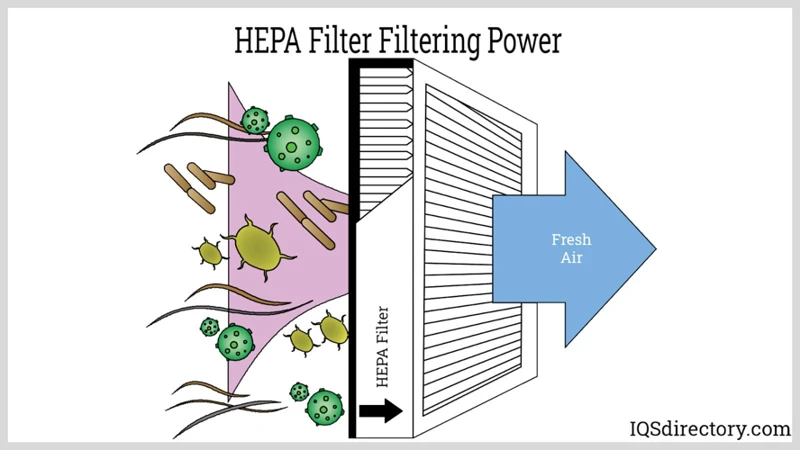
HEPA, or High Efficiency Particulate Air, filter is a type of air filter that is commonly used in air purifiers, vacuum cleaners, and HVAC systems. It is designed to capture and trap small particles that are not visible to the naked eye, such as allergens, pet dander, and dust mites.
What sets HEPA filters apart from other types of filters is their efficiency in capturing these microscopic particles. To be classified as a HEPA filter, the filter must be able to capture at least 99.97% of particles as small as 0.3 microns in diameter. This efficiency rating makes HEPA filters a popular choice for people who suffer from allergies, asthma, and other respiratory conditions.
HEPA filters are made up of a mat of randomly arranged fibers, typically composed of fiberglass. These fibers are pressed together to form a dense, maze-like network of tiny passages that air must pass through. As air flows through the filter, particles that are too large to pass through the passages become trapped within the fibers.
HEPA filters come in different sizes and types, ranging from small filters for use in air purifiers to large filters for use in commercial HVAC systems. When selecting a HEPA filter, it is important to consider factors such as airflow, filter replacement cost, and whether the filter is permanent or replaceable.
Using a HEPA filter has many advantages, including trapping microscopic particles, improving air quality, and providing relief for allergies and asthma. They can be used on their own or in conjunction with a smart vacuum cleaner with HEPA filtration to further improve indoor air quality.
Despite their effectiveness, HEPA filters do have their limitations. They are not effective against odors and gases, and require regular replacement to maintain their efficiency. However, overall, HEPA filters remain one of the most effective ways to reduce indoor air pollution and promote a healthy living environment.
How does a HEPA filter work?
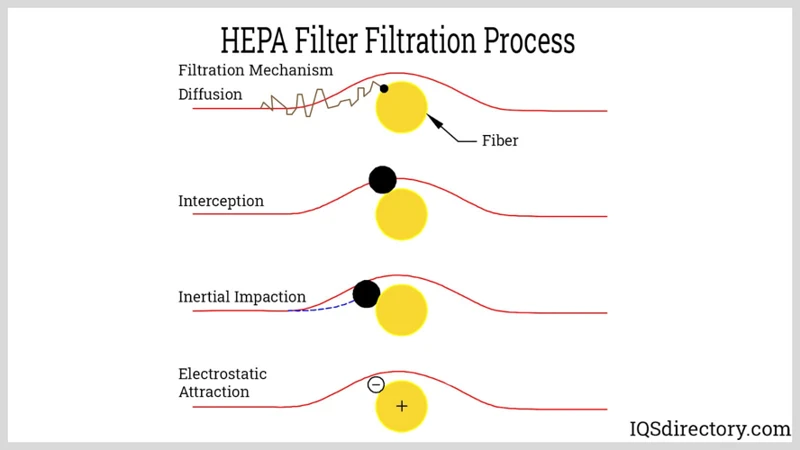
HEPA, which stands for High-Efficiency Particulate Air, filters can remove up to 99.97% of airborne particles that are larger than 0.3 microns in size. That’s because HEPA filters are a type of mechanical air filter that forces air through a fine mesh to trap harmful particles, effectively purifying the air.
The mesh is made up of randomly arranged fibers that work like a sieve to trap particles. As air moves through the filter, particles are captured within the fibers, leaving only clean air to pass through. The most important thing to note about HEPA filters is that they do not generate or produce ozone as a by-product, making them an eco-friendly solution for purifying the air indoors.
One of the essential parts of a HEPA filter is the pleated high-quality filter media, which provides an expanded surface area to effectively capture and hold microscopic particles. The pleats help to increase the surface area of the filter media, allowing the filter to capture more particles and to last longer before it needs to be changed.
Another crucial component of a HEPA filter is the filter frame. The frame is a critical part of the filter that provides support to the filter media, ensuring that it stays in position and maintains maximum airflow. Most HEPA filters are designed with a sturdy and durable aluminum frame that can resist deformation when replaced or cleaned.
It is important to note that the effectiveness and efficiency of a HEPA filter can be determined by the size of particles it can capture. Most HEPA filters can capture particulate matter that is 0.3 microns or larger. However, some specialized HEPA filters can capture particles that are as small as 0.1 microns in size, making them ideal for people who suffer from asthma or allergies.
HEPA filters are a cost-effective and energy-efficient way to improve the air quality inside your home or workspace. With their advanced filtration technology, HEPA filters can effectively remove harmful airborne parasites that can cause allergies or asthma. By working in tandem with a HEPA filter vacuum cleaner or smart vacuum, you can keep your indoor air fresh and healthy.
Advantages of using a HEPA filter
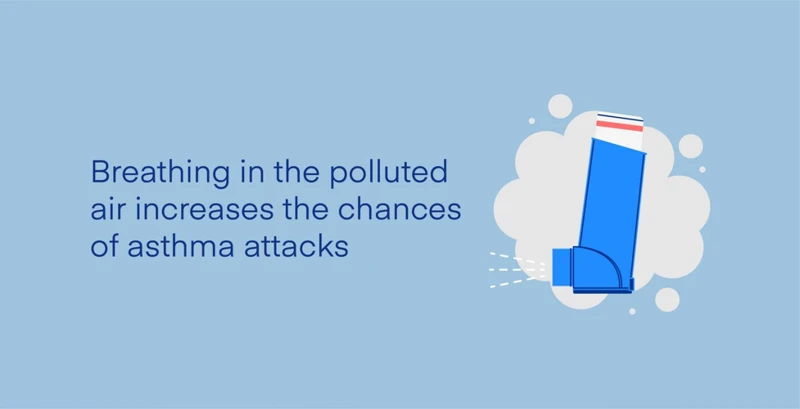
Breathing polluted air can have a profound impact on our health, but luckily, there are ways to combat indoor air pollution. One such solution is the use of HEPA filters. These innovative filters can significantly improve the quality of the air we breathe indoors. It is no wonder that these filters have gained popularity over the years. In this section, we will delve into the advantages of using a HEPA filter and how they can benefit you and your family. We will also highlight some important factors to consider when choosing a HEPA filter for your home. For those interested in smart home technology, we will discuss how you can combine a HEPA filter with a smart vacuum cleaner to create an even more efficient cleaning solution.
Traps microscopic particles
One of the biggest advantages of HEPA filters is that they are designed to trap microscopic particles, which are often the most harmful pollutants in indoor air. These particles can include dust mites, pet dander, pollen, tobacco smoke, and other pollutants that are small enough to slip through traditional air filters.
HEPA filters are built with a dense layer of fine mesh fibers that are tightly woven together. This structure captures even the smallest particles, preventing them from circulating in the air and causing respiratory problems. Additionally, HEPA filters have a high efficiency rating, which means they are capable of trapping over 99% of airborne particles that pass through them.
This is especially important for individuals with allergies or asthma, as these conditions can be triggered by exposure to small airborne particles like pollen, pet dander, and dust mites. By removing these particles from the air, HEPA filters can help alleviate symptoms and improve overall quality of life. HEPA filters can be used in a variety of indoor environments, including residential homes, offices, and medical facilities.
It’s important to note that in order for HEPA filters to be effective, they must be changed regularly. Over time, the filter can become clogged with trapped particles, reducing its efficiency and effectiveness. Additionally, while HEPA filters are great at trapping small particles, they are not effective against odors and gases. To effectively combat these pollutants, a combination of HEPA filters and other technologies, such as activated carbon filters, may be necessary.
To further improve indoor air quality and reduce allergy and asthma symptoms, using a HEPA filter with a smart vacuum cleaner is also recommended. A smart vacuum cleaner equipped with HEPA filtration can help capture the small airborne particles that traditional vacuums often miss. Some models even allow for filter replacement alerts and automatic filter changing, taking the hassle out of filter maintenance.
Overall, HEPA filters are an effective and important tool in reducing indoor air pollution. They are capable of trapping harmful microscopic particles, improving air quality, and reducing allergy and asthma symptoms. While they may not be effective against odors and gases, they are still a valuable addition to any indoor environment.
Improves air quality
One of the biggest advantages of using a HEPA filter is that it improves air quality by eliminating harmful pollutants and airborne particles. According to the United States Environmental Protection Agency (EPA), indoor air can contain levels of pollutants that are up to five times higher than outdoor air. This is because indoor air is trapped and recirculated, which means that harmful particles can build up over time.
HEPA filters are designed to remove as much as 99.97% of airborne particles that are at least 0.3 microns in size. This includes dust, pollen, pet dander, and other common household allergens. By removing these allergens from the air, HEPA filters can help to relieve allergies and asthma symptoms in individuals who suffer from these conditions.
Another benefit of using HEPA filters is that they can help to reduce exposure to harmful pollutants such as cigarette smoke, mold spores, and bacteria. These pollutants can be particularly harmful to individuals with compromised immune systems, young children, and the elderly. By removing these pollutants from the air, HEPA filters can help to improve overall health and well-being.
It’s important to note that the effectiveness of a HEPA filter depends on several factors, such as the quality of the filter and the airflow of the device it’s installed in. Some types of HEPA filters are more effective than others at trapping certain types of particles, so it’s important to consider the specific needs of your home or office when choosing a filter.
Using a HEPA filter can significantly improve indoor air quality, which can lead to better health outcomes for individuals who suffer from allergies, asthma, or other respiratory conditions. When combined with a HEPA filter vacuum cleaner or a HEPA filter smart vacuum, the benefits of HEPA filtration can become even more pronounced.
Relieves allergies and asthma
Using a HEPA filter can have a significant impact on people with allergies and asthma. HEPA filters are designed to trap microscopic particles that can aggravate respiratory conditions, including pollen, pet dander, and dust mites. By removing these pollutants from the air, HEPA filters can provide relief for those who suffer from allergies and asthma.
Here are some additional ways that HEPA filters can help relieve allergies and asthma:
- Reduces airborne pathogens: HEPA filters effectively remove bacteria and viruses from the air. By reducing the number of harmful pathogens in the air, individuals with respiratory issues are less likely to experience infections.
- Decreases triggers: HEPA filters are very efficient at capturing dust and other allergens that trigger sneezing and coughing. By using a HEPA filter, individuals can decrease the number of allergens in their environment and reduce the likelihood of triggering asthma and allergy symptoms.
- Improves sleep: When asthma symptoms are triggered at night, it can make it difficult to get a good night’s sleep. HEPA filters can significantly reduce the amount of allergens in the air, leading to a reduction in nighttime asthma and allergy symptoms. This can lead to better quality sleep and improved overall health.
HEPA filters can provide significant relief for individuals with respiratory conditions like allergies and asthma. However, it is important to remember that HEPA filters are not a cure for these conditions. If you have allergies or asthma, it is important to seek medical treatment and follow your doctor’s advice.
If you want to optimize the benefits of HEPA filtration, you can consider using a smart vacuum cleaner with a HEPA filter. Smart vacuums with HEPA filters, like those found here, can help ensure that the air in your home remains clean and healthy. It is important to note, though, that even with a smart vacuum and HEPA filter, regular filter replacement is necessary to maintain optimal performance, like those mentioned here.
Factors to consider when choosing a HEPA filter
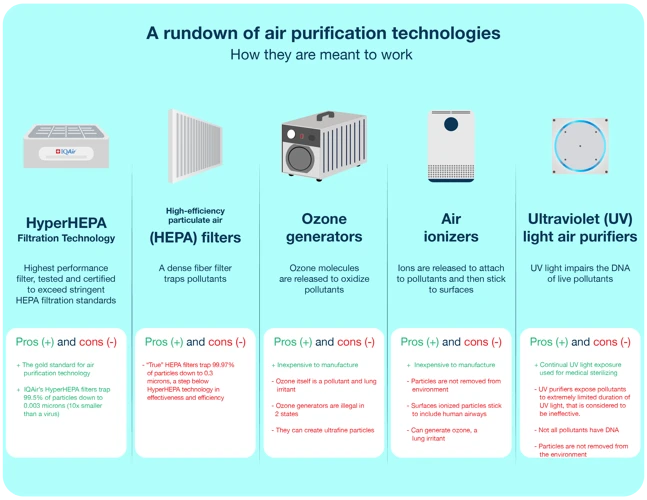
Choosing a HEPA filter can be a daunting task, as there are various factors that play a significant role in its effectiveness. It’s essential to consider key aspects such as the airflow, the cost of replacing filters, and the type of HEPA filter (permanent or replaceable). Let’s explore how these factors could impact the performance of a HEPA filter in reducing indoor air pollution.
Airflow
When choosing a HEPA filter, the airflow should be a major consideration. The airflow is the amount of air that can pass through the filter in a defined period of time. A HEPA filter with a high airflow will be able to clean the air in a room quicker than one with a lower airflow. However, a filter with a high airflow may also be more expensive.
Factors that affect airflow:
- The size of the room
- The strength of the air flow from the fan or air handler
- The resistance of the filter
It is important to choose a HEPA filter with an appropriate airflow for the size of the room it will be used in. If the airflow is too low, the filter may not be able to clean the air as quickly as needed, leaving the air quality in the room compromised. On the other hand, if the airflow is too high, the filter may not be able to effectively capture all of the particles in the air.
Additionally, the strength of the air flow from the fan or air handler can also impact the effectiveness of the HEPA filter. If the fan or air handler is too weak, it may not be able to push the air through the HEPA filter effectively, reducing its ability to remove particles from the air.
Finally, the resistance of the filter can also impact the airflow. HEPA filters with a higher resistance will require more energy to push air through them, resulting in a lower airflow. As a result, it is important to choose a HEPA filter with the right balance of resistance and airflow, to ensure optimal performance and energy efficiency.
Filter replacement cost
The cost of filter replacement is an important factor to consider when choosing a HEPA filter. HEPA filters that are designed to be replaceable are generally more cost-effective in the long run compared to those with permanent filters that require cleaning.
When selecting a HEPA filter, consumers should look for products that offer replacement filters at an affordable price. Additionally, the frequency of filter replacement should be considered, as frequent replacements can add up over time. It is recommended to choose a HEPA filter that has a longer lifespan, but still effectively removes pollutants from the air.
It is important to note that the cost of replacement filters can vary based on the brand and model of the HEPA filter. In some cases, generic filters may be available for a lower price, but it is crucial to ensure that these filters are compatible with the specific HEPA filter being used.
Consumers should also keep in mind that proper maintenance and cleaning of the HEPA filter can prolong its lifespan and reduce the frequency of filter replacements. Regular cleaning of the pre-filter and replacing the carbon filter can also help maintain the efficiency of the HEPA filter.
When considering the cost of filter replacement, it is important to weigh the initial cost of the HEPA filter against the cost of maintenance and replacement filters over time. By carefully considering these factors, consumers can select a cost-effective HEPA filter that provides long-term benefits for indoor air quality.
- HEPA filters that allow for replaceable filters are typically more cost-effective in the long run.
- Choose a HEPA filter that has a longer lifespan and effectively removes pollutants from the air.
- Filter replacement costs can vary based on the brand and model of the HEPA filter.
- Regular maintenance and cleaning of the HEPA filter can help prolong its lifespan and reduce the frequency of replacements.
Filter type (permanent or replaceable)
When choosing a HEPA filter, one of the factors to consider is whether it is permanent or replaceable. Both types have their advantages and disadvantages, and the decision ultimately depends on individual needs and preferences.
Permanent Filters
Permanent HEPA filters are designed to last a lifetime and do not need to be replaced. They are typically made of durable material such as steel or aluminum and can be washed and reused multiple times. While they may be more expensive upfront, they can save money in the long run since they do not require frequent replacement.
Replaceable Filters
Replaceable HEPA filters, on the other hand, need to be changed periodically according to the manufacturer’s guidelines. They are typically made of a combination of fiberglass and paper and are less expensive than permanent filters. They come in different sizes and shapes, and it’s important to choose one that fits perfectly into the air purifier.
Comparison Table
To make an informed decision, below is a comparison table of the pros and cons of permanent and replaceable HEPA filters:
| Filter Type | Advantages | Disadvantages |
| :————————–:| :—————————:| :———————————:|
| Permanent | Lasts a lifetime | More expensive upfront |
| | Washable and reusable | Limited range of sizes |
| | Environmentally friendly | |
|
| Replaceable | Less expensive upfront | Needs to be replaced periodically |
| | Comes in a variety of sizes | Not reusable |
| | Easy to find replacement | |
When choosing between permanent and replaceable HEPA filters, it’s essential to weigh the pros and cons carefully. If cost-efficiency and convenience are the top priorities, replaceable filters are the way to go. However, if durability and eco-friendliness are crucial factors, then permanent filters may be worth the investment.
Using a HEPA filter with a Smart Vacuum Cleaner

One of the best ways to enhance the effectiveness of HEPA filtration is to use a smart vacuum cleaner with a built-in HEPA filter. A smart vacuum cleaner is a device that can be programmed to clean the house automatically, and the presence of a HEPA filter in such a device can make a big difference in reducing indoor air pollution.
When considering a smart vacuum cleaner, it is important to look for those with a HEPA filter. HEPA filters are known to trap microscopic particles that can cause health issues, such as dust, mites, and pet dander. Using a smart vacuum cleaner will not just save you time, but it will also help you eliminate these harmful particles from your home.
Additionally, smart vacuum cleaners have sensors that detect dirt, dust, and debris, and they can clean the house without human intervention. This feature can be helpful in reducing exposure to harmful particles during cleaning.
When using a smart vacuum cleaner with a HEPA filter, it is recommended to clean and replace the filter regularly. This is because, as the filter captures more particles, its effectiveness decreases, and it may even begin to release trapped particles back into the air. To avoid this, it is important to keep the filter clean and replace it as per the manufacturer’s recommendations.
Using a HEPA filter with a smart vacuum cleaner can make a significant difference in reducing indoor air pollution. And with the increasing popularity of smart homes, integrating a HEPA filter with a smart vacuum cleaner is a no-brainer for anyone who values clean indoor air quality.
Limitations of HEPA filtration
While HEPA filtration is an effective way to reduce indoor air pollution, it’s important to note that it’s not a panacea. There are some limitations to using HEPA filters that homeowners should be aware of. It’s natural to wonder if these limitations will compromise the benefits of HEPA filtration. In this section, we’ll discuss some of the challenges that come with relying exclusively on HEPA filters and what to expect from them.
Not effective against odors and gases
Although HEPA filters are effective in removing airborne particles in the air, they do have some limitations. One of the major limitations is that they are not effective against odors and gases. This means that the filter cannot eliminate smells or fumes from the air, no matter how strong or unpleasant they might be.
Why are HEPA filters ineffective against odors and gases?
HEPA filters are designed to capture particles that are larger than 0.3 microns in size. This includes things like dust, pollen, and pet hair. However, odors and gases are made up of much smaller particles that the filter simply cannot trap. The filter’s dense layers of mesh and fibers are simply incapable of capturing these smaller particles.
What are some examples of odors and gases that HEPA filters cannot remove?
HEPA filters cannot remove smoke, volatile organic compounds (VOCs), or carbon monoxide from the air. This is important to consider when choosing a filtration system, especially in homes where residents smoke or where there is poor ventilation.
What can be done to address odors and gases in the air?
To address odors and gases in the air, it’s important to consider other types of filtration such as activated carbon filters, which can neutralize odors and absorb VOCs. Additionally, improving ventilation in your home can help to eliminate harmful substances from the air. Opening windows or using air purifiers that incorporate both an activated carbon filter and a HEPA filter can help to address both particles and odors in the air.
Conclusion:
While HEPA filters can effectively remove airborne particles in the air, they do have limitations. As they are not able to eliminate odors and gases from the air, it’s important to consider other types of filtration in conjunction with HEPA filters to ensure clean indoor air. By incorporating other filtration methods and techniques, you can enjoy fresh, clean air in your home.
Regular replacement of filters
Ensuring that HEPA filters are regularly replaced is crucial in maintaining their effectiveness in reducing indoor air pollution. Over time, HEPA filters become clogged with particles and can no longer effectively trap microscopic pollutants from the air.
Replacing filters regularly requires careful consideration of the manufacturer’s recommended replacement schedule. Some filters may need to be replaced as frequently as every three months, while others can last up to a year. Consider the level of air pollution in your home and how frequently you use your air purifier to determine how often you should replace the filter.
Ignoring the recommended replacement schedule can lead to reduced air quality in your home and may even cause your air purifier to malfunction. A clogged filter can cause the fan of the purifier to work harder than it needs to, leading to increased energy usage and potential overheating.
Investing in high-quality filters can also help to extend the life of your HEPA filter. While replaceable filters may be more cost-effective, they may also be of lower quality and need to be replaced more frequently. A more expensive permanent filter may last longer and provide better air purification, ultimately saving you money in the long run.
Keeping track of when to replace your filters can be done by setting reminders on your phone or writing the replacement date on a calendar. Make sure to have replacement filters on hand so that you can promptly replace the old filter when the time comes.
Regular replacement of HEPA filters is crucial in maintaining the effectiveness of your air purifier in reducing indoor air pollution. By investing in high-quality filters and keeping track of the recommended replacement schedule, you can ensure that your home has clean and healthy air.
Conclusion
In conclusion, it is evident that HEPA filtration plays a crucial role in reducing indoor air pollution. By effectively trapping microscopic particles that cause allergies, HEPA filters improve air quality and create a healthier environment for people to live and work in.
However, it is important to note that HEPA filters have limitations. They are not effective against odors and gases, and regular filter replacement is necessary to maintain their effectiveness. When choosing a HEPA filter, factors such as airflow, filter replacement cost, and filter type should be considered as well.
To maximize the benefits of HEPA filtration, it is recommended to pair it with a Smart Vacuum Cleaner that also uses HEPA filters. This combination creates an optimal indoor air quality system that removes both microscopic particles and larger particles such as dust and pet hair.
Overall, investing in HEPA filters is an investment in the health and well-being of individuals and their families. By improving indoor air quality, HEPA filters provide a safe and comfortable living and working environment that promotes good health and productivity.
Frequently Asked Questions
What is the difference between indoor and outdoor air pollution?
Indoor air pollution occurs inside buildings or homes, while outdoor air pollution occurs outside in the natural environment.
What are some common sources of indoor air pollution?
Air fresheners, building materials, cleaning products, and tobacco smoke are just a few examples of common sources of indoor air pollution.
Can indoor air pollution cause health problems?
Yes, exposure to indoor air pollution can cause a variety of health problems including respiratory issues, headaches, and allergies.
What is a HEPA filter made of?
HEPA filters are typically made of a combination of fiberglass and other materials that allow them to trap microscopic particles.
How often should HEPA filters be replaced?
HEPA filters should be replaced every 6-12 months depending on usage and the level of pollutants in the indoor environment.
Can HEPA filters help with pet allergies?
Yes, HEPA filters can trap pet dander and other airborne allergens, making them an effective tool for reducing allergic reactions in pet owners.
What is a Smart Vacuum Cleaner?
A Smart Vacuum Cleaner is a type of vacuum that uses technology like Wi-Fi connectivity and Artificial Intelligence to clean floors more efficiently.
Are all HEPA filters the same?
No, there are different types of HEPA filters that vary in quality and level of filtration. It’s important to research and choose a high-quality filter for maximum effectiveness.
Can HEPA filters help with cigarette smoke?
Yes, HEPA filters can help trap cigarette smoke and other airborne particles associated with smoking, making them useful for improving indoor air quality in smoking households.
Do HEPA filters consume a lot of energy?
No, HEPA filters consume very little energy and are an energy-efficient way to improve indoor air quality.

